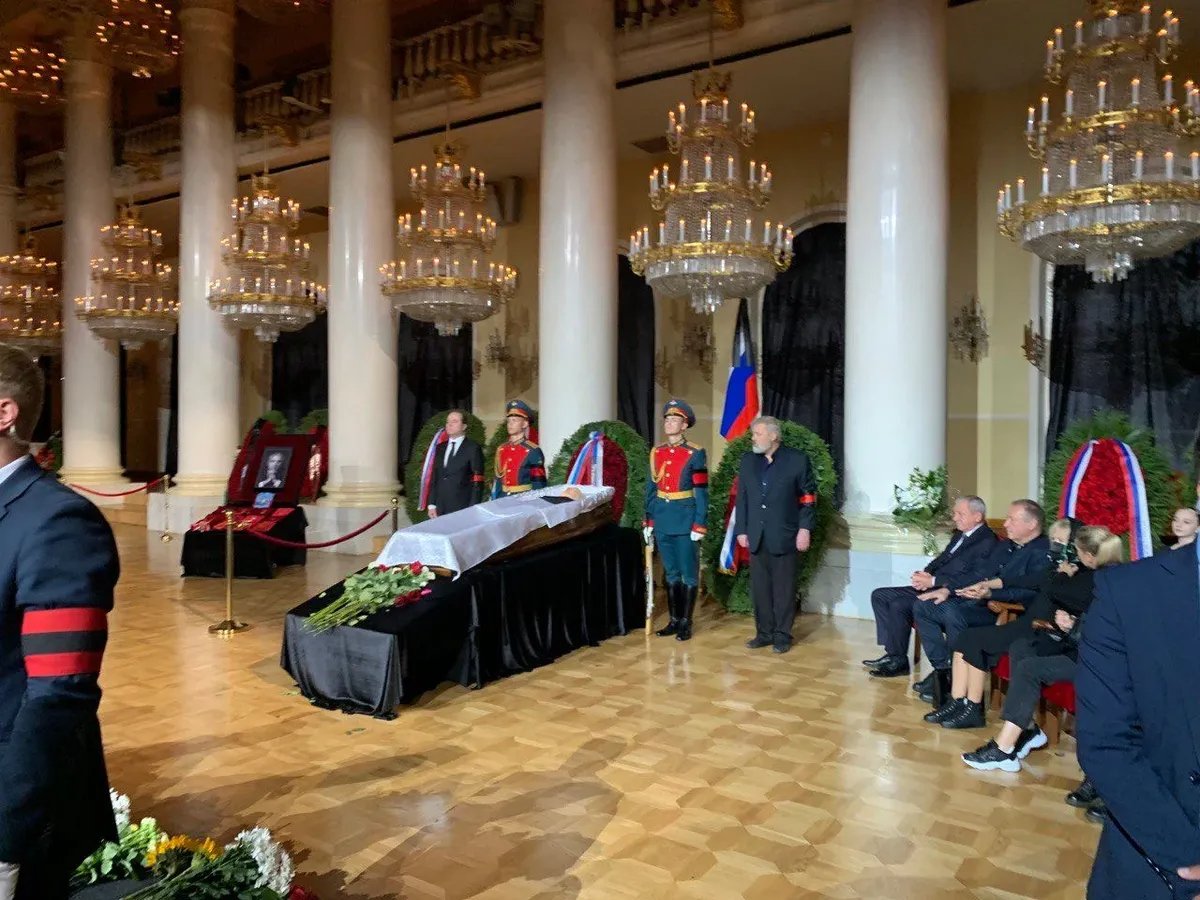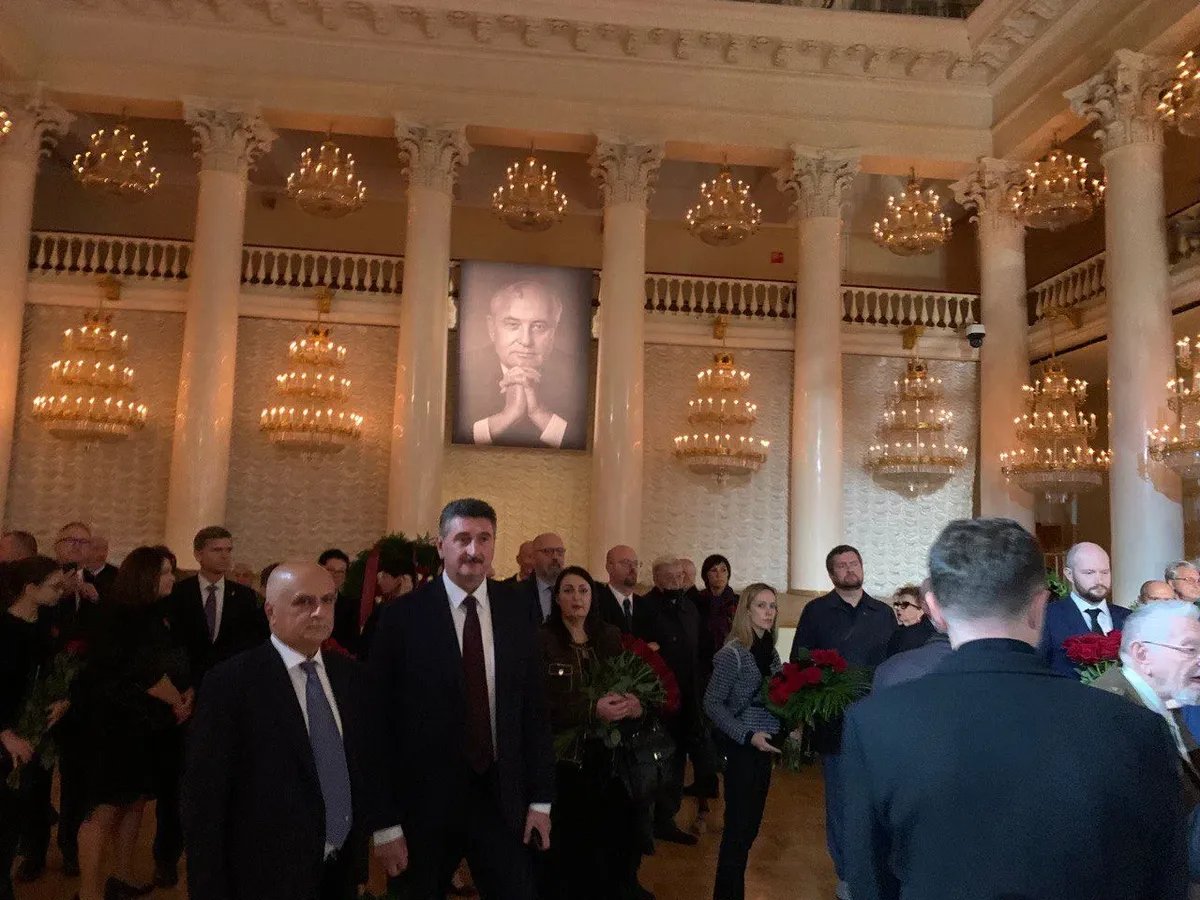A funeral ceremony for Mikhail Gorbachev, the first president of the USSR, was held at the Moscow House of the Unions. Gorbachev passed away on 30 August aged 91.

Novaya Gazeta Editor-in-Chief Dmitry Muratov at the ceremony. Photo: Maxim Solopov / RTVI
A large queue formed outside of the House of the Unions in the run-up to the ceremony. Several streets in downtown Moscow were cordoned off.
Nobel Peace Prize laureate and Editor-in-Chief of Novaya Gazeta Dmitry Muratov, Russian Deputy Security Council Secretary Dmitry Medvedev, Hungarian Prime Minister Viktor Orbán, US Ambassador to Russia John Sullivan, TV hosts Dmitry Kiselev and Vladimir Pozner, singer Alla Pugacheva and many others were in attendance.

Photo: Maxim Solopov / RTVI
Russian President Vladimir Putin did not attend the ceremony. It was reported earlier that “due to his working schedule”, Putin laid flowers at Gorbachev’s coffin at the Moscow Central Clinical Hospital, two days before the official ceremony.
After the ceremony, Gorbachev will be buried beside his late wife Raisa.
President of the USSR, co-founder of Novaya Gazeta and 1990 Nobel Peace Prize laureate Mikhail Gorbachev passed away at the age of 91.
Gorbachev was General Secretary of the Communist Party of the Soviet Union from 1985 to 1991, and was the last man to occupy that post. In the late 1980s, Gorbachev became Chairman of the Presidium of the Supreme Soviet of the USSR, later becoming Chairman of the Supreme Soviet of the USSR, and eventually becoming the first and only president of the Soviet Union from 1990 to 1991. In 1989, Gorbachev oversaw the end of the 10-year Soviet-Afghan war. The following year, in 1990, Gorbachev received the Nobel Peace Prize for his contribution to the peace process between the West and the USSR — effectively, for his efforts in ending the Cold War.
During Gorbachev's tenure at the helm of the Soviet Union, he championed the political movement of “perestroika” (“restructuring”), which was announced as state policy in 1987. The programme introduced reforms that would change the political and economic structure of the USSR. As a result, “glasnost” (“openness”), a policy of transparency in government activities and freedom of information was introduced, censorship was abolished and relations with the West improved.
Gorbachev remained in power during the collapse of the Soviet Union. On 25 December 1991, he resigned as president of the USSR — on the following day, 26 December 1991, the Council of Republics of the USSR’s Supreme Soviet passed a declaration on the dissolution of the Soviet Union, cementing its downfall.
